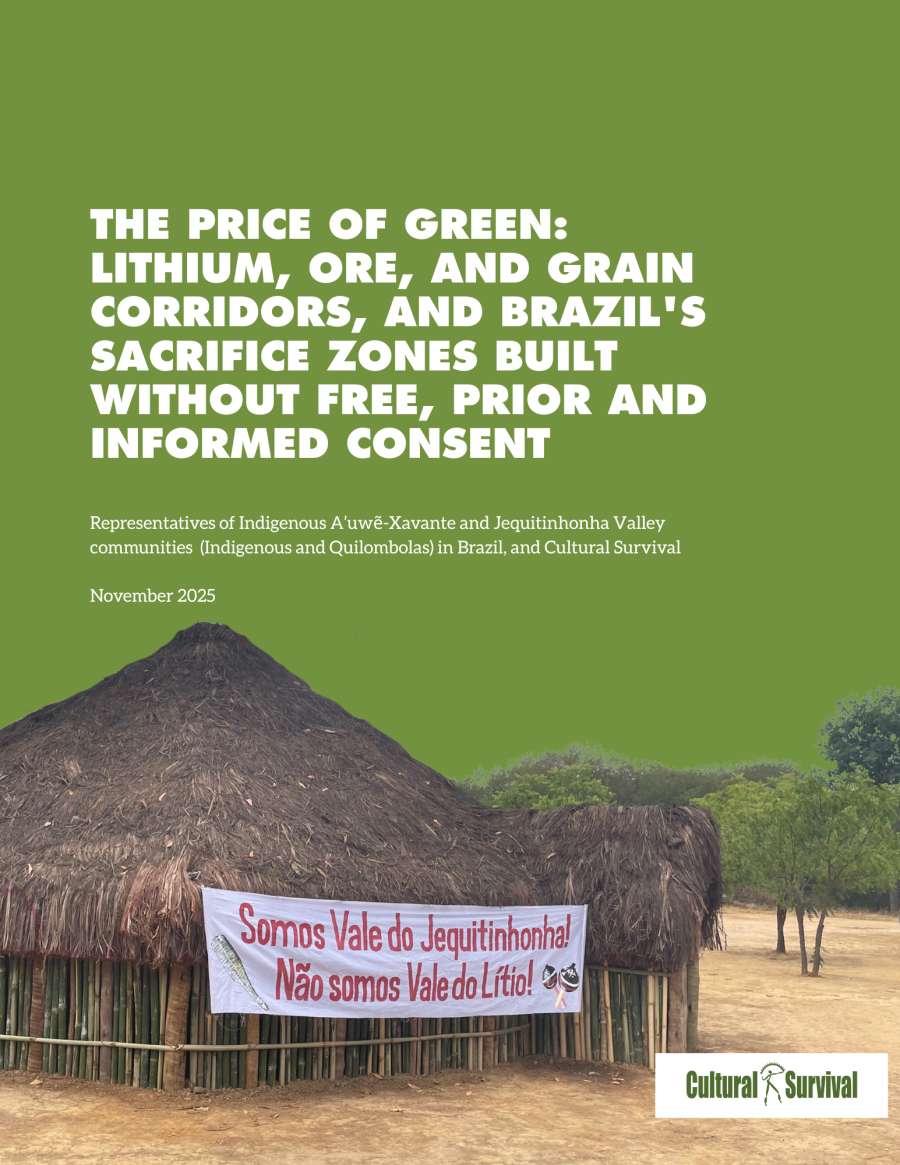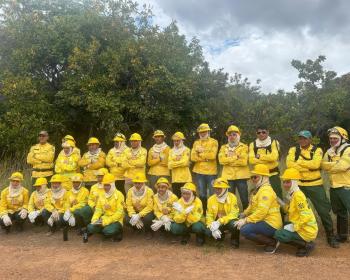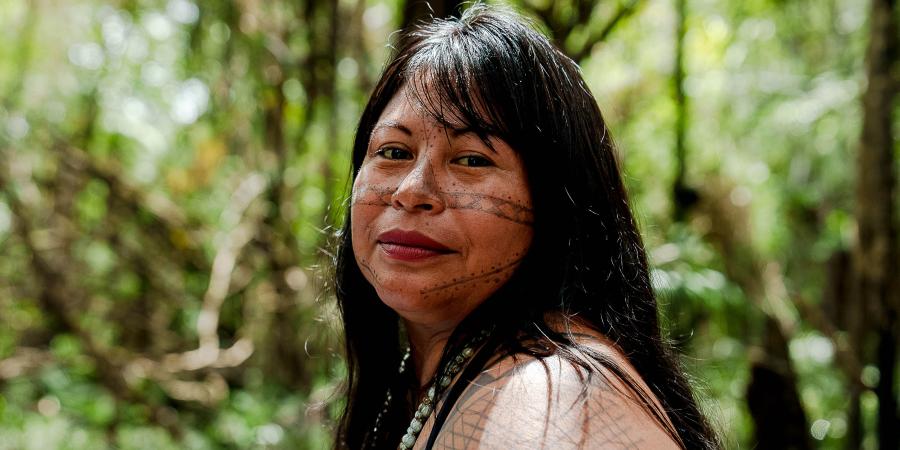Indigenous Women and Women of Color Plan for International Conference on. Population and Development
Indigenous women and women of color will have the opportunity to voice their concerns about population and development at the upcoming International Conference on Population and Development (ICPD). While all these groups welcome enhanced access to family planning services, they are split on interpreting the relationship between population growth and environmental degradation. Some maintain that the two issues are tightly linked, while most blame social injustice and militarization - for destroying the environment.
The UN-sponsored conference in Cairo next September will involve non-governmental organizations, community groups, intergovernmental agencies, representatives from the private sector, and government leaders including Vice-President Gore and Timothy Wirth of the U.S. State Department.
Its main objectives are to review the World Population Plan of Action, a document outlining specific objectives for addressing population issues world-wide, and to establish a new plan of action for the next 20 years involving the relationship between population and sustainable economic development. In addition to these broad policy objectives, Dr. Nafis Sadik, Secretary General of the ICPD and Executive Director of the United Nations Population Fund (UNFPA), has emphasized the need to focus on human rights issues such as gender equality, women's education, and maternal and child health. The theme of the conference will be the choices and responsibilities of women and men all over the world with regard to population and development.
Although the ICPD is the third in a series of international meetings addressing population concerns, it is the most recent international conference to directly address population concerns as they link to development. The first population conference in 1974 was held in Bucharest and produced the World Plan for Population Action. The plan was innovative, at the time, in that it incorporated women's rights within its population agenda and it has since become the foundation of world population policies. The second international meeting took place in 1984 in Mexico City where women's rights took a beating when the US government decided to withdraw funding from international organizations dealing with family planning, such as UNFPA.
It is yet to be seen to what extent the ICPD will truly address the concerns of those most marginalized - indigenous women and women of color - on issues such as gender equality, reproductive rights, maternal and child health, and women's education. The prospects look promising, however, as women's health advocates from all over the world join efforts in preparing for the ICPD.
Although last year's Rio Summit provided a valuable forum in which indigenous peoples and other marginalized groups could participate, it skirted the population issue - leaving many groups, specifically women's organizations, dissatisfied. Women's health advocates from around the world organized the Reproductive Health and Justice: International Conference on Women's Health during the Rio Summit to prepare for the Cairo conference. They are now following up last year's meeting by organizing indigenous women and women of color delegations to attend the ICPD to insure that their concerns are addressed and that concrete follow-up actions are taken. The underlying concern of indigenous women and women of color is that the development myths which have been propagated by Western development models must be deconstructed, and that development policies which affect their lives must include their true experiences and concerns.
Women's health advocates are divided on how to address population and development issues. Many insist that indigenous women and women of color are negatively affected by Western development policies which blame high female fertility rates for environmental degradation. They feel that such policies undermine poor women by imposing cultural attitudes about family size and infringe upon women's rights to make decisions concerning their bodies. As Gita Sen and Caren Grown have stated in their revolutionary book on gender and development, Development Alternatives, "Women know that childbearing is a social, not a purely personal, phenomenon; nor do we deny that world population trends are likely to exert considerable pressure on resources and institutions by the end of this century. But our bodies have become a pawn in the struggles among states, religions, male heads of households, and private corporations." Women's health advocates also feel that focusing on over-population detracts from the fundamental causes of environmental destruction. over-consumption by Northern countries, exploitation of natural resources by the elites in those countries, and militarization.
Statistics recounting the large discrepancy between resource-use by Northern countries as opposed to those in the South are well-known. However, numbers which disclose the actual amount of military funding are often seen as extraneous to the population and development debate. In actuality, militarization is a central issue, when considering that health (including family planning) and education services worldwide are suffering most severely from budget cuts while the military budget remains solid. As Jeanne Vickers contends in her book, Women and the World Economic Crisis: "Cuts in government spending due to the world economic crisis have fallen more heavily on health and education than on the military. Between 1983 and 1986, military expenditure in developing countries ... was reduced from 6.7% to 6.1%(a 9% cut), while expenditure on education was reduced from 3.8% to 3.4% (a 10.5% cut) and on health from 1.5% to 1.3% (a 13.3% cut)."
At the same time, some indigenous women identify high population growth as being detrimental to their standard of living. According to Wanga (Grace) Mumba of Zambia, Founder and Executive Director of the Environment and Population Centre (EPC) in Zambia, the goal of EPC is to increase awareness among policy makers and the public of the adverse effects of uncontrolled population growth and environmental degradation on the quality of life.
The focus is thus not the direct relationship between population growth and environmental destruction but rather the realization that any measures to curb population are often Southern-based and implemented at the expense of the rights of indigenous women and women of color. These women often question the faulty assumptions of Western development policies. Three of most common misconceptions are that low fertility rates automatically result in alleviation of poverty; that it is acceptable to promote and implement population control policies in Southern countries and not in the North; and that women should take sole responsibility for family planning.
It is widely understood among indigenous women and women of color that poverty is not caused by overpopulation and does not necessarily end with fewer children. Marginalized women have many other explanations for the cause of poverty based on their life experiences. According to Marchell Wesaw, Native American activist and Education and Public Policy Coordinator at Cultural Survival: "It is not one more Indian baby nor one more African-American baby which causes poverty for women in America ...it is inequality (spurred by racism, sexism, and classism) that blames poverty on the birth of one more baby." In addition, indigenous women and women of color, particularly in the South, feel that it is discriminatory to establish "population control" policies in the South and to ignore population issues in the North. Many women also face a very real danger - brutal domestic violence - if the men they are sexually involved with are not informed of the importance of family planning services. A recent WorldWatch study found that "more than 50% of Mexican women using state-sponsored birth control services do so secretly because they fear their husbands will physically abuse them if they find out."
Policy-makers and local activists will use the forum of the ICPD to promote action-oriented recommendations on population and development issues. As ChiefBisi Ogunleye, Director of the Country Women's Association of Nigeria, asserts, "I believe women can mobilize funds for integrated family planning, meaningful family planning, sustainable family planning, family planning that allows the women to sit down and plan. There's no family planning if women are not part of the decision-making. I think Cairo is a good opportunity for women to speak. And what we have done so far in finding alternative strategies has given me a lot of hope that women will shake governments in Cairo. I think women are working so hard to come up with alternative planning which will give the world sustainable population policies. It's my own dream and I think women will come up with it."
Article copyright Cultural Survival, Inc.



